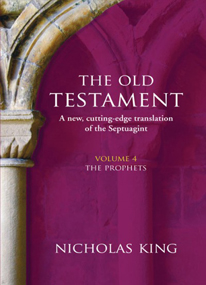
Price: £19.99 (hardback), £16.99 (paperback)
ISBN: 978 1 84867 069 3
|
THE
WAY a review of Christian spirituality |
| July 2013 | Vol 52 No 3 |
To readers and friends of The Way, welcome to our 2013 Special Issue:
To order this new issue of The Way only, please click HERE.
Please click here to subscribe to The Way.
Contents
Evolving Approaches to Spiritual Direction in South Africa
Two decades after the collapse of the apartheid system, much of South African society is still divided. ‘The suburbs are still predominantly white and affluent’, while ‘people living in the townships are mostly black’. The two authors of this article have trained spiritual directors to work in both settings, and here reflect on how the kinds of direction offered have changed to meet contrasting needs.
Download this article in PDF format by clicking here
The Spiritual Director as a Cultural Translator
A competent translator must know two languages well: the one of the original text, and the one of the resulting translation. Analogously, spiritual directors must be familiar with both the spiritual tradition in which they have been trained and the cultures of those they are directing. Here Festo Mkenda spells out the implications of this understanding in an African context.
Ignatian Discernment and the Search for an African Identity: Ministering to a Protean African
In Greek mythology, Proteus was a shape-shifter, able to adopt different forms to suit different circumstances. Many African cultures have been deeply marked by the experiences of slavery and colonialism, and by recent exposure to postmodern relativism. One result is that African identity can be seen as protean, fluid. Litoing asks what this means for attempts to discern in an African context.
Spiritual Directors in a Time of AIDS: Bearing Witness to Suffering and Grace
Since the 1980s much of Africa has been severely affected by the HIV/AIDS pandemic. The practice of spiritual direction cannot be, and has not been, uninfluenced by this fact. At its best it is perhaps able to help those suffering from the disease to come to terms with, and even perhaps find some meaning in, their affliction. Phillips offers examples of how this can be done well, and approaches to avoid.
Hospitality and Spiritual Direction
Hospitality is a concept that was taken for granted in the cultures which produced the Jewish and Christian scriptures, to the extent that it has, until recently, been given little explicit attention. Carloyn Butler, a native of the United States who has spent decades in Africa, has been struck by its importance in the cultures she has encountered as a travelling spiritual director.
A Turbulent Journey in Turbulent Times: Freedom, Companionship and Fullness of Life
Spiritual direction as practised in Europe and North America has tended to focus on the individual and his or her journey towards God. The authors here argue that the more communal nature of many Afrcan cultures call for a different approach, one which lends itself more readily to promoting the forgiveness that may be especially needed in fractured societies.
African Worldviews: Their Impact on Spiritual Direction, from the Perspective of Healing and Transformation
Many Africans who seek spiritual direction are led to do so by the desire to solve perceived spiritual problems and promote their own spiritual well-being. The way in which these problems are understood depends largely on the world-view of those being directed, which can differ markedly from that of their directors. Juma looks for ways in which these differences can be overcome.
Spiritual Direction and African Indigenous Spirituality
It is clearly a mistake to think of there being just one African culture or spirituality: the continent is marked by a great variety. Reflection on this variety can, Mosha believes, help the spiritual director to appreciate more deeply such concepts as the inter-connectedness of all life, the example expected of the director, and the place of silence in the direction process.
Listening to Your Story: A Narrative Approach to Spiritual Direction in the South African Context
The transition to a post-apartheid South Africa was greatly aided by the establishment of the Truth and Reconciliation Commission, which offered participants from all sections of that divided society a safe space in which to tell the stories of their own experience. Correia argues that story-telling of this kind has a key role to play in spiritual direction in such a setting.
To order this new issue of The Way, please click HERE.
THE WAY IGNATIAN BOOK SERVICE
New titles:
The Old Testament: The Prophets, translated by Nicholas King SJ
You have received this e-mail because you have been in touch with us in the past. We will be sending out this kind of promotional e-mail at approximately quarterly intervals, but we are anxious not to send information to anyone who does not want to receive it. If you would prefer not to hear about new issues of The Way, or if you are receiving more than one copy of our message, please click here. Note that if you e-mail The Way again, you may need to unsubscribe again—our mailing list is maintained manually!